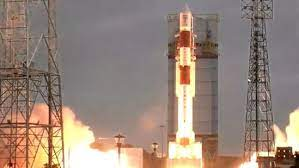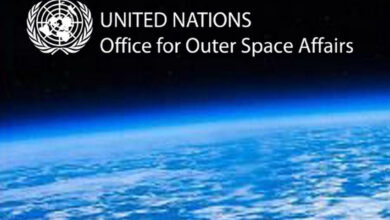ISRO exhibits its prowess with top-notch lift-off of PSLV-C56 with 7 foreign satellites
- PSLV-C56 mission lifted-off from the Satish Dhawan Space Centre
- The primary payload of the PSLV-C56 mission was the DS-SAR satellite
- India had previously launched the Chandrayaan-3 mission

Bangalore, Sriharikota, July 30. In another significant milestone for India’s space exploration, the Indian Space Research Organisation (ISRO) successfully launched the Polar Satellite Launch Vehicle (PSLV), on its 56th mission to space with seven foreign satellites, with a picture-perfect lift-off, in the wee hours of Sunday.
Indian Space Research Organisation (ISRO) once again proved its prowess. The PSLV-C56 mission lifted-off from the Satish Dhawan Space Centre in Sriharikota at 6.31am IST, marking the second big launch by the Indian space agency in two weeks, after its much anticipated Chandrayaan-3 launch. India had previously launched the Chandrayaan-3 mission to the Moon on July 14 from Sriharikota.
The primary payload of the PSLV-C56 mission are the DS-SAR satellite, a Synthetic-aperture radar (SAR) that creates two-dimensional images or three-dimensional reconstructions of objects.
Developed under a partnership between DSTA, representing the Government of Singapore, and ST Engineering, the DS-SAR satellite will cater to the imagery needs of various Singapore government agencies and ST Engineering’s commercial customers.
The launch was conducted by ISRO under a contract with New Space India Limited (NSIL). The Sunday morning launch marked the 431st foreign satellite launch from the country by the Indian Space Agency, and the fourth dedicated PSLV launch for the Singapore government.
All seven satellites were successfully deployed into their intended orbit, nearly 20 minutes after launch from Sriharikota.
The DS-SAR satellite, weighing 360 kg, was launched into a Near-equatorial Orbit (NEO) at an altitude of 535 km.
It carries a SAR payload developed by Israel Aerospace Industries (IAI), enabling all-weather day and night coverage and capable of imaging at 1m-resolution at full polarimetry.
This high-resolution capability will allow the Singapore government to assess the damage caused by natural disasters, monitor land use, track deforestation, and support security and defence operations. Commercial customers can use the satellite for purposes such as oil and gas exploration, agricultural monitoring, and infrastructure assessment.
Alongside the DS-SAR, six co-passenger satellites were also launched.
These include VELOX-AM, a technology demonstration microsatellite; ARCADE, an experimental satellite for atmospheric coupling and dynamics exploration; SCOOB-II, a nanosatellite flying a technology demonstrator payload; NuLIoN by NuSpace, an advanced nanosatellite enabling seamless IoT connectivity in both urban & remote locations; Galassia-2, a nanosatellite orbiting at low earth orbit; and ORB-12 STRIDER, a satellite developed under international collaboration.
The successful launch of PSLV-C56 and DS-SAR showcases India’s increasing influence in the global space industry, fostering partnerships and attracting commercial satellite operators worldwide. This not only generates revenue but also contributes to country’s space economy’s growth.
Once deployed and operational, the DS-SAR satellite will be used to support the satellite imagery requirements of various agencies within the government of Singapore, as per ISRO.





